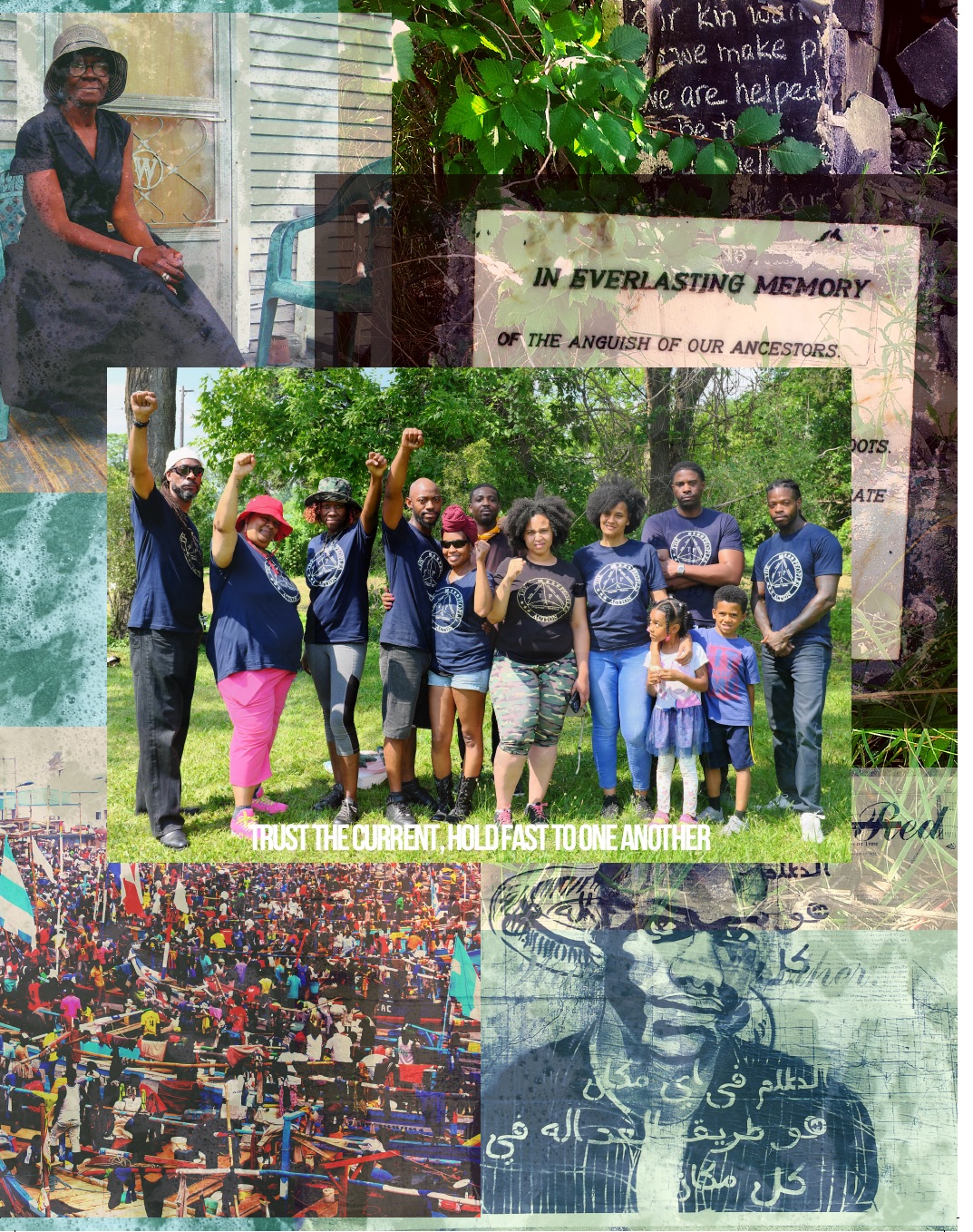Riverwise Summer/Fall 2019 Editorial
Healing As We Build
How do we heal?
Throughout Detroit neighborhoods and gatherings people frequently ask this question. This question acknowledges the pain we carry. Whether from the wounds of systemic injustice and oppression—water shutoffs, school closures, home evictions, job loss—or the damage inflicted by state violence that harkens back generations,the common thread that runs through these conversations is our longing to become whole.
For many of us, healing means facing our personal pain, inflicted by nameless institutions or intimate friends. Increasingly we are learning that transforming grief, pain and loss is more than a personal journey. Across the city, people are coming together with intention and tenderness for one another in ways that encourage us to find health in our relationships. Community-building, in its various forms, is in and of itself an act of healing for both those who participate directly and for the wider circle of folks who are witness to it.
In our neighborhoods, we are reactivating block clubs, hosting celebrations of art and culture, participating in restorative earth work, and other healing endeavors which take on the challenge of mental health and psychological suffering head-on. Through these efforts we can look forward to stronger communities and a future where such things as school closures and water shut-offs are no longer possible.
In the shadow of the Neighborhood Service Organization (NSO) Bell building, the Hope Village Farmers Market was open every Wednesday this summer with local vendors providing a range of foods and information. Hope Village Farmers Market, an outgrowth of Focus:HOPE, is part of a wider community of organizers emerging on Oakman Blvd. Nandi’s Knowledge Cafe is now situated right down the street. Hope Village organizers say that, as we work on reshaping our environments, we need healing zones to prepare us for visionary organizing. They are hoping to add dedicated spaces to the market where folks can seek dialogue and healing conversations.
Not far from Hope Village, the concept of organizing as a vital part of our collective healing has been practiced for several years. Dedicated to healing through positive self-expression, the annual North End Urban Expressions Art Festival was held in late August on Oakland Avenue. The festival is the culmination of community organizing which occurs directly in the neighborhood where participants live. Healing by way of historical connection and collective cultural identity is directly attached to the sense of place emerging in the North End. Organizers there are constantly asking, what does it look like to connect our past to the present? They are helping to tell the story of the neighborhood in a way that allows the elders to reconnect to young people who are a vital part of this new history unfolding every day.
Reconnecting with the truths of our ancestral legacies is another way that folks in Detroit are healing. Our Summer/Fall 2019 issue of Riverwise features images taken by dancer and photographer, Imani Ma’At, who recently studied in Ghana. What started as an opportunity to expand her education became a spiritual healing for Imani, the power of which is evident in the images she brought back to us. We’re thankful to present some of these on the pages of Riverwise. We’re also thankful to be reminded of how we can ‘return to the source’ as a healing journey.
We also feature several leaders who are transforming themselves and the world around them. Negus Vu, Pam McGhee and Denguhlanga Julia Kapilango, offer different ways to enact protracted struggles to transform individuals and neighborhoods. Negus Vu and The People’s Action (TPA) focus on inclusionary practices and taking direct action to challenge traditional strains of political power. Pam McGhee, whose story covers a lifetime of activism in several different Detroit neighborhoods, has settled back in her childhood home where joining neighbors in new struggles. Denguhlanga Kapilango and other activists in Dearborn took on a legacy of racism, and created a space for conversations to bloom around a strategically- placed sapling.
The end of summer saw many critical gatherings as people become more aware of how our collective strength enlarges our personal sense of what is possible. The Green New Deal rally at Cass Park drew thousands in support of pushing a more sustainable agenda as part of the Democratic Party Presidential Debates. The 2019 Community Benefits Conference 3.0 was devoted to continuing the fight for a local policy agenda that creates a city where “all Detroiters prosper” and where a majority Black Detroit matters. We take these as signs that, in a slow and meaningful way, healing is emerging all around us as we forge a new path towards an equitable and sustainable future.
— ed.


